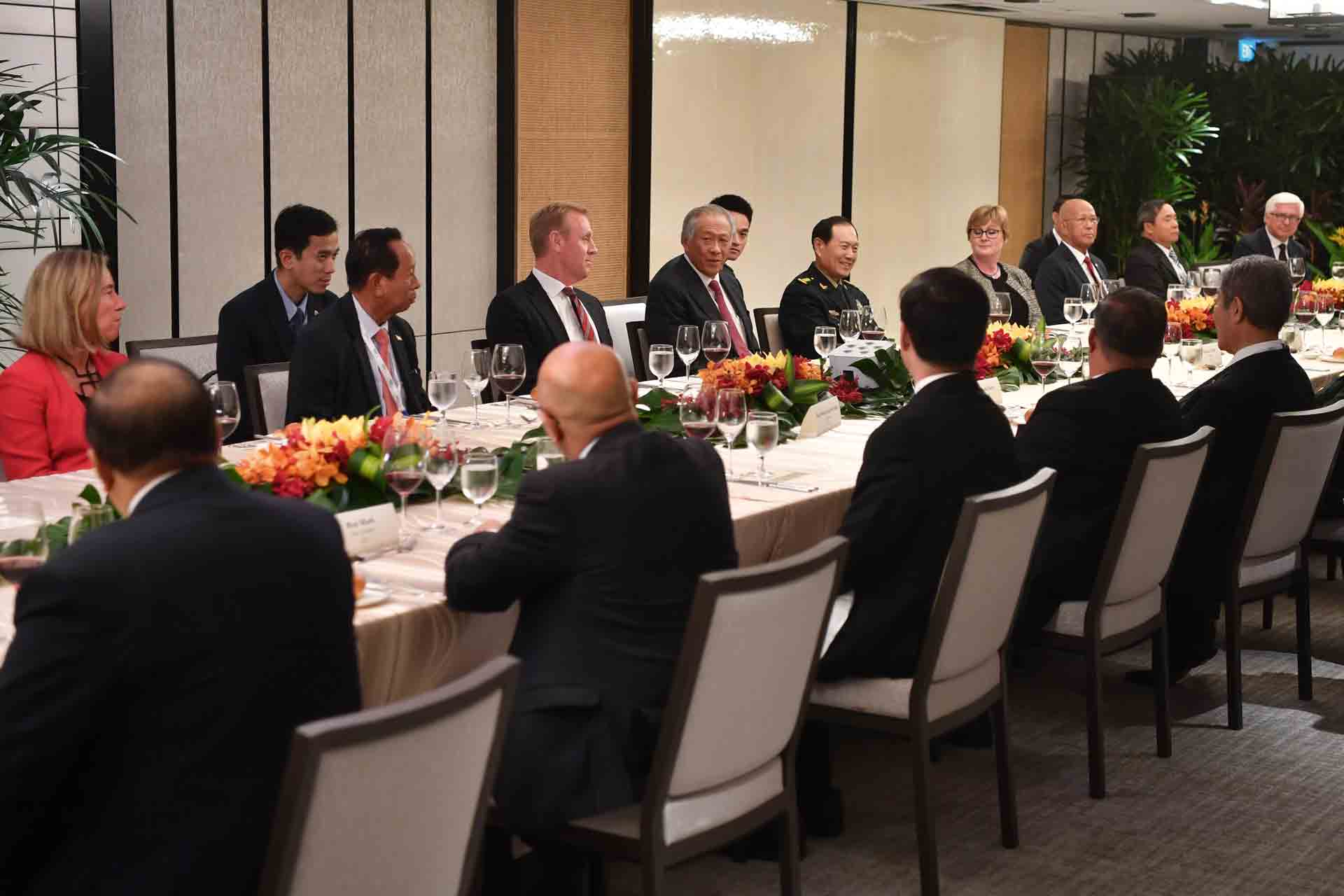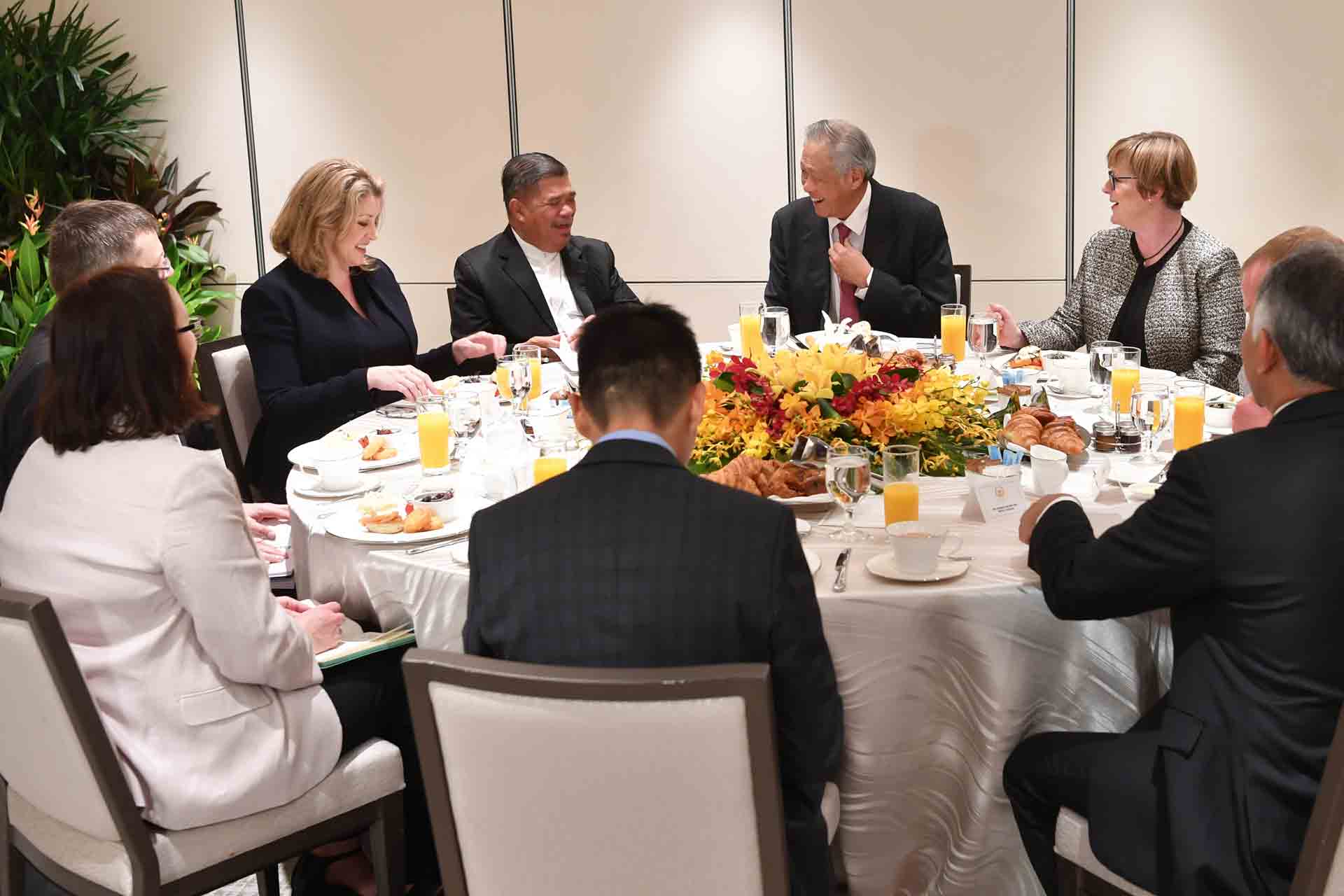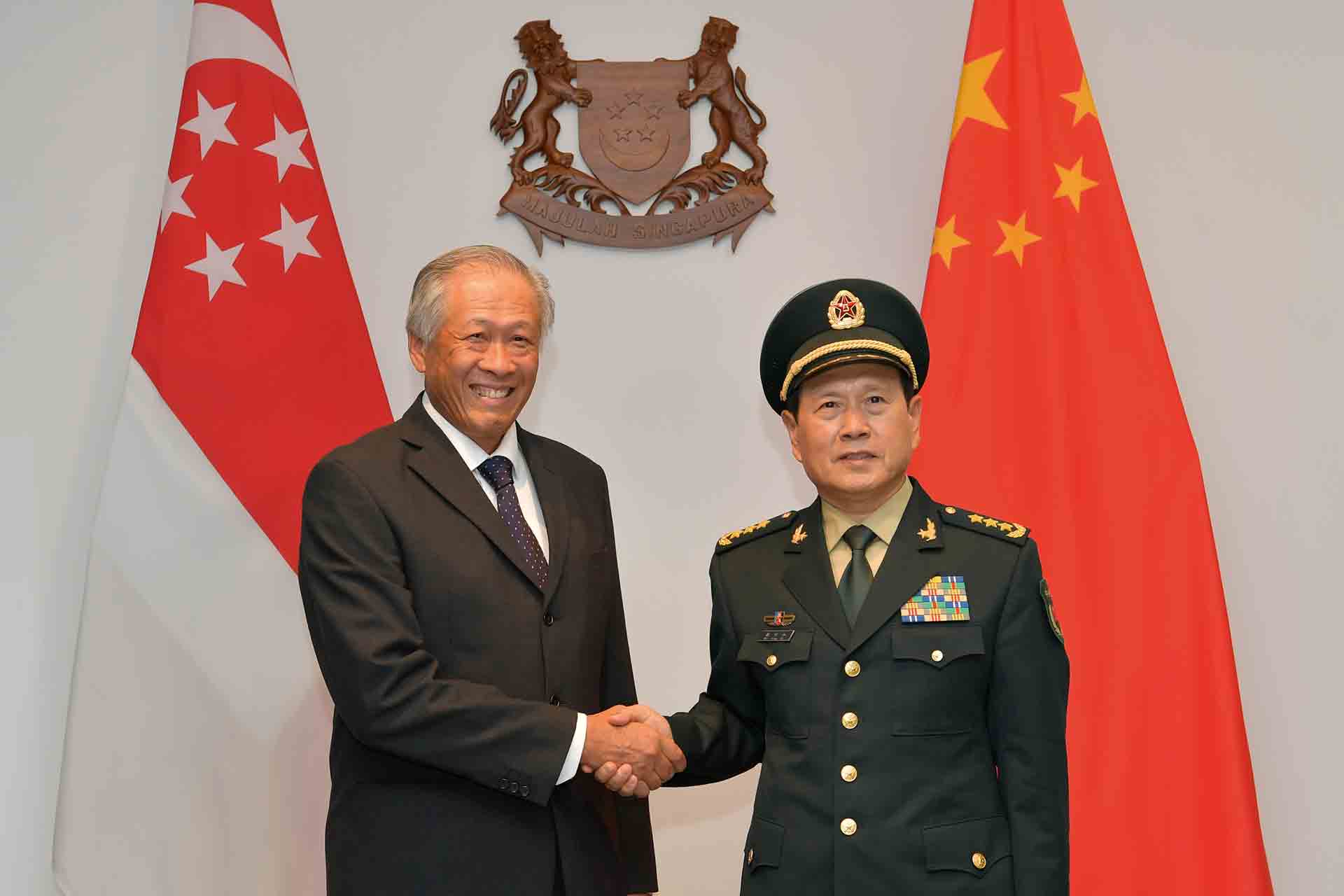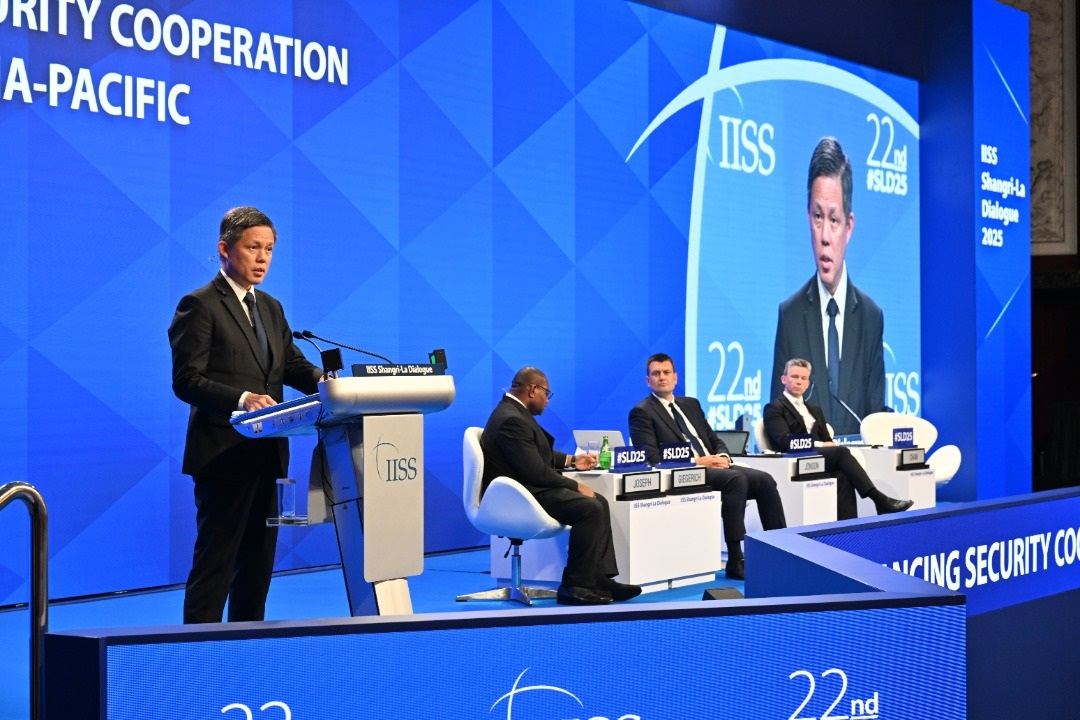DIPLOMACY
WORKING TOGETHER TO BOOST TIES & RECONCILE DIFFERENCES
01 Jul 2018
Singapore hosts top defence officials from the US, China and other countries to discuss pressing security issues in the region at this year’s Shangri-La Dialogue (SLD).

Rising tensions between the United States (US) and China took centre stage at the 18th SLD, an annual high-level defence and security summit for the Asia-Pacific region.
Prime Minister Lee Hsien Loong opened the summit with a keynote speech on 31 May, urging the US and China to find a constructive way forward.
He said it is in China's own interest to implement timely changes that bring about greater reciprocity and parity with its trading partners.
The rest of the world has to adjust to a larger role for China, which will continue to grow and strengthen.
He added: "The bottom line is that the US and China need to work together, and with other countries too, to bring the global system up to date, and to not upend the system. To succeed in this, each must understand the other's point of view, and reconcile each other's interests."
On the overlapping maritime claims in the South China Sea, Mr Lee said China should resolve the dispute in accordance with international law.
"It should do so through diplomacy and compromise rather than force or the threat of force, while giving weight to the core interests and rights of other countries. Then, over time, it will build a reputation as a responsible and benevolent power that need not be feared."
Small states can play an important role
Mr Lee also spoke about what other countries can do to promote and maintain stability during these uncertain times.
He said small countries like Singapore can work together with other states to deepen economic cooperation, strengthen regional integration, and build up multilateral institutions.
"With more stake in one another's success, they will have greater incentive to uphold a conducive and peaceful international order. This will benefit countries both big and small."
Open to dialogue
Both the US and China raised issues and explained their positions at the SLD. But they also left their doors open for talks and cooperation.
In the opening plenary session on 1 Jun, then-US Acting Secretary of Defence Patrick Shanahan noted that the US will cooperate with China where there is an alignment of interests.
The next day, Chinese State Councillor and Minister of National Defence General (GEN) Wei Fenghe said that while China is ready to compete with the US on trade, it will keep doors open should the US want to hold talks.
Addressing issues
In a media interview after the close of the SLD, Minister for Defence Dr Ng Eng Hen said there was a sense of optimism among the delegates that if the US and China could articulate the issues, then perhaps the two sides could resolve the issues or reduce their differences.
Dr Ng also described US' and China's intentions to increase interactions between their defence officials as another positive sign.
"The more interactions you have, even when there are differences, you reduce the risk of missteps and miscalculations," said Dr Ng, adding that Singapore and the ASEAN Defence Ministers' Meeting (ADMM) will also continue to push for more military-to-military interactions.
He also noted that countries in the region recognised that the South China Sea is an international waterway, and were working on the Code Of Conduct to ensure a peaceful and stable region.
Countries should not have to pick sides
In his plenary speech on 2 Jun, Dr Ng spoke about why countries should not be forced to pick sides in the US-China rivalry.
"Whatever the underlying motivations for either country, if America First or China's rise is perceived to be lopsided against the national interests of other countries or the collective good, the acceptance of US' or China's dominance will be diminished," he said, adding that countries will hedge first in trade ties and inevitably in security alliances.
"Worse still is the situation where individual countries have to choose between the US or China, be it in technology, trade, security or comprehensive partnerships.
That will be the ultimate losers' game and a race to diminishing benefits for all concerned."
In a question-and-answer session after his speech, Dr Ng noted that creating a world dominated by a few blocs with strong divisions (such as during the Cold War and the two World Wars) would set countries up for conflict.
"We still believe that multilateral trade arrangements are not only important for economic dependencies (and) economic health, but for security. Because if I trade a lot with you, it is quite hard for me to fight with you."
This year's SLD was attended by 34 ministerial-level delegates and more than 30 defence chiefs and senior defence officials, as well as prominent academics from 47 countries.
ALSO READ IN DIPLOMACY
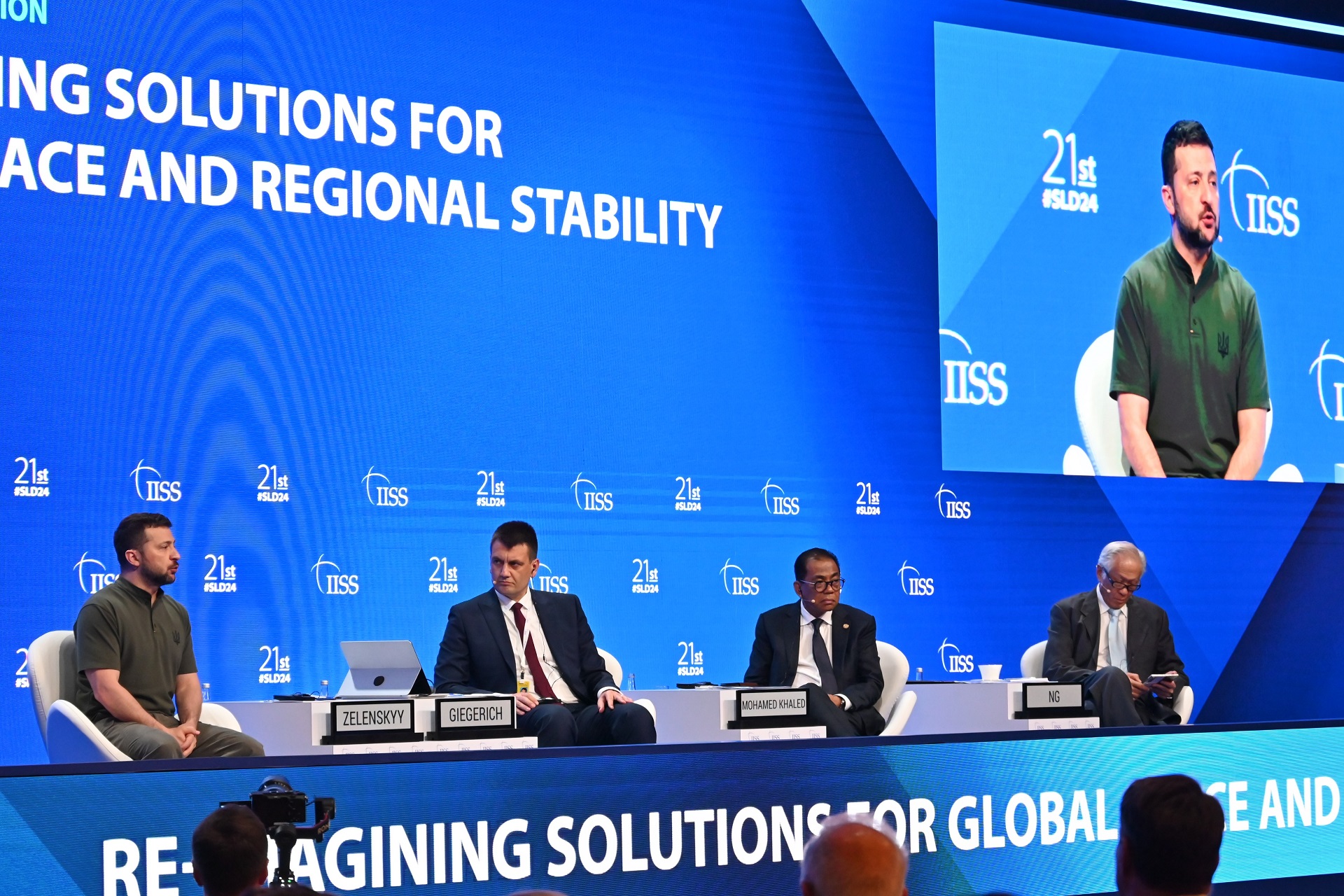
A call for peace at Shangri La Dialogue
02 Jun 2024
A repeated call for peace, especially in Asia. This was Minister for Defence Dr Ng Eng Hen's central message at the 21st Shangri La Dialogue (SLD), held from 31 May to 2 Jun.
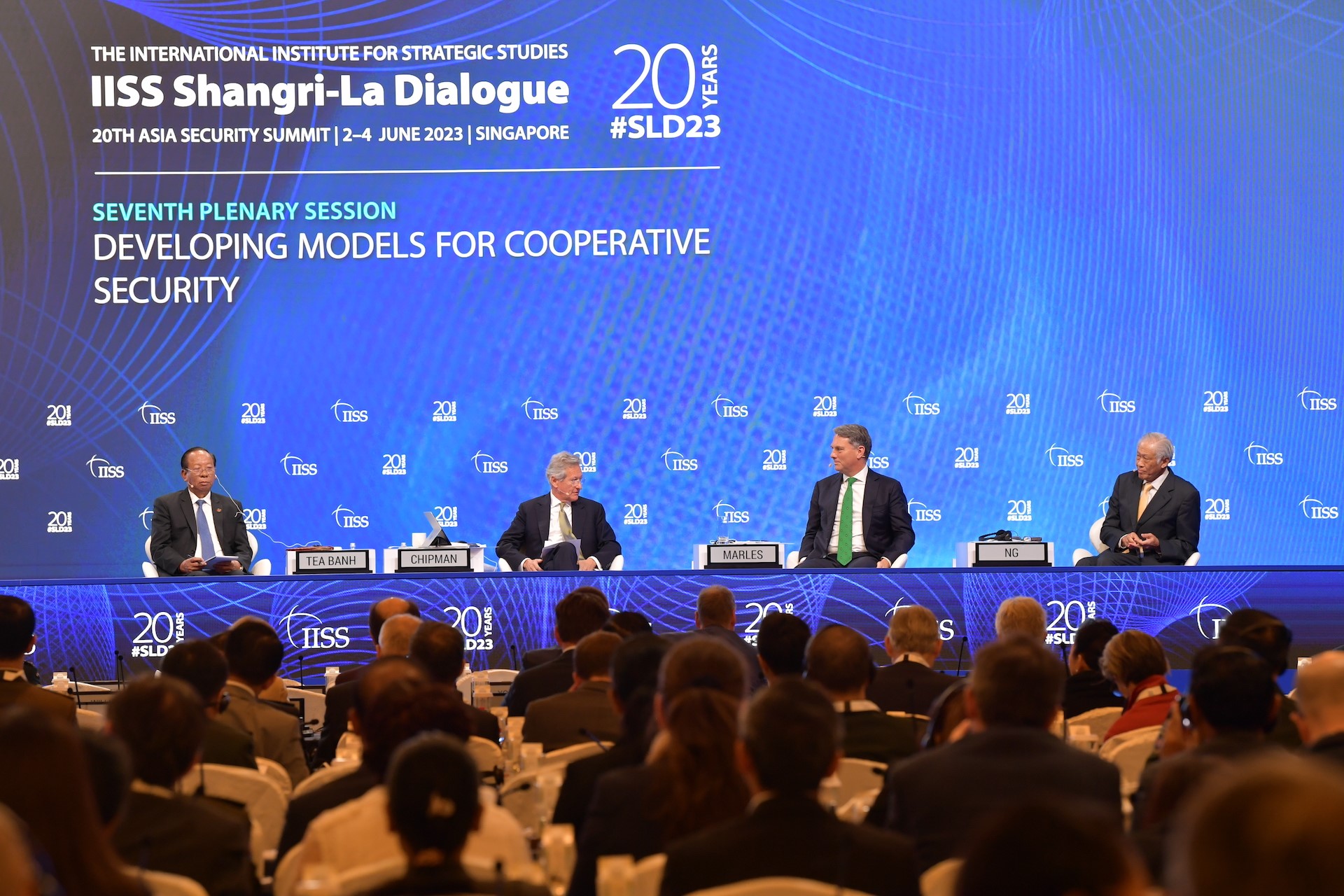
Shangri-La Dialogue sees frank discussion of security issues
04 Jun 2023
The 20th Shangri-La Dialogue, held from 2 to 4 Jun, saw ministers from around the world meet in Singapore to discuss key defence and security issues.
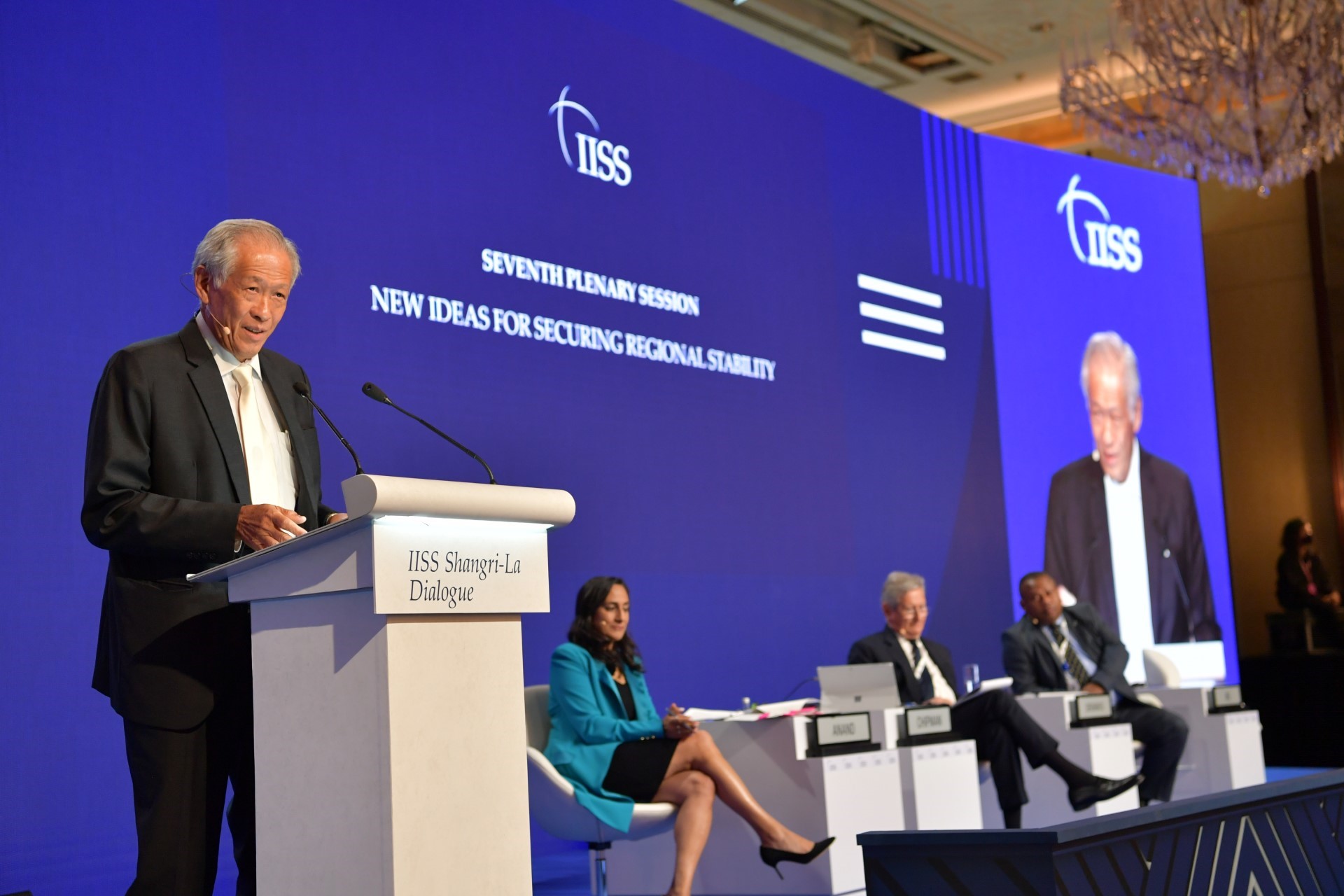
SLD remains valuable platform for crucial discussions: Dr Ng
12 Jun 2022
Minister for Defence Dr Ng Eng Hen spoke on the US-China relationship, the importance of a rules-based order and the role of ASEAN as a regional security platform at the 19th Shangri-La Dialogue (SLD).

